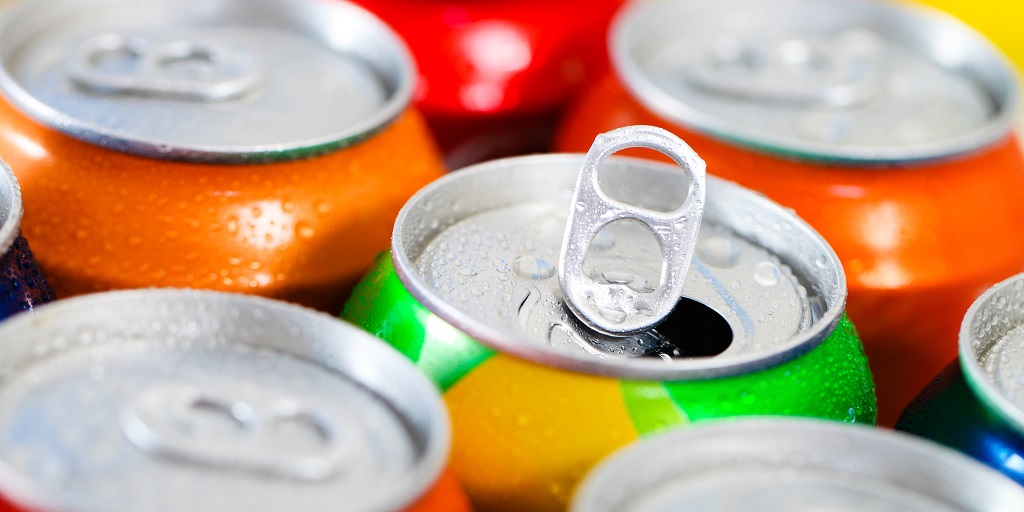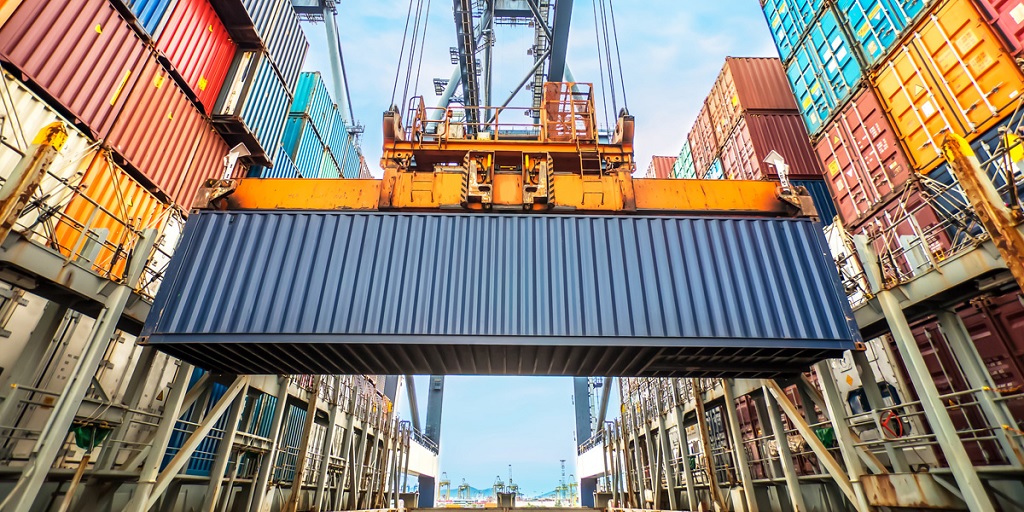
Closing the loop on containers

Container suppliers are juggling the ongoing demands of the beer industry and sanitation regulations during COVID-19, placing in stark relief the need for new solutions as they focus on sustainability.
While CO2 supply has been protected in Australia by diversified onshore sourcing, the same cannot be said for many other aspects of the brewing industry.Delays with new brewkits being shipped from overseas and the lack of engineers to commission them, shortages of glass growlers during COVID-19 and even worries about can availability which have rippled over from the US recently, have highlighted the potential vulnerabilities brewing-related industries are exposed to due to a reliance on global markets.
Glass, paper, aluminium and steel are all raw materials which breweries use in their packaging, and much discussion has been had on the relative merits of each, but what ties their suppliers together is a drive towards sustainability.
We spoke to bottle manufacturers O-I Glass, plastic keg supplier Petainer, suppliers of aluminium cans Orora, and keg rental business Konvoy to find out more about the sustainability and logistics challenges they face as they move to even more sustainable models.
Australia-made?
The benefits of manufacturing, sourcing and recycling in Australia where possible are at least twofold. It would allow industries to be protected from shortages in the wake of a global crisis like COVID-19, and improve sustainability credentials of our containers through shorter travel times, domestic recycling and greater control over other practices like power generation.
However, lower price points in foreign manufacturing industries are attractive and often offset the freight and travel costs – although the effects of COVID-19 on this aspect of the industry remain to be seen. The industries of other countries may also have better access to materials and skills (though not necessarily comparable employment practices to Australia) which can make manufacturing abroad financially compelling.
So one way to keep a large part of manufacturing within Australia is to recycle.
Glass is one packaging option and Craig Mynott, O-I Glass regional cullet director, said that the company undertakes a closed-loop process where bottles can be used to remake other jars and bottles again and again within as little as 30 days.
“Using recycled glass in the manufacturing process means we use less raw material and energy, both of which result in lower carbon emissions,” Mynott explained.
“By maximising the amount of recycled glass we use in our production process, we reduce our environmental impact.
“The caveat here is of course the bottles and jars that are imported into Australia by food and beverage companies that buy their containers offshore, or import their finished products into this country.
“Regardless, any empty glass container that ends up in the waste recycling process is then absorbed by our recycling system and becomes part of the country’s closed-loop system.”
O-I has manufacturing plants in South Brisbane, Spotswood in Melbourne, Penrith in Sydney and West Croydon in Adelaide. Rather than having one main recycling plant, Mynott explained that this has been done to reduce the need for transport and increase efficiency.
The benefit with glass is that its quality is maintained despite multiple recyclings, but with other materials, the quality degrades over time and after multiple processes.
Meanwhile, stainless steel kegs, considered the most sustainable option due to the nature of their repeated use and volumes, are largely made abroad.
Konvoy founder Adam Trippe Smith said that Konvoy’s kegs are sourced from Thielmann and Blefa, the largest global producers of kegs in the world, as well as China-based Major.
“The Konvoy team are massive fans of the sustainability benefits of kegs and keg pooling,” Trippe-Smith said.
“Beverages dispensed via kegs result in less wastage of packaging, glass and cans. When producers use a keg pooling solution, the distances travelled by empty kegs shipping air are drastically reduced.”

Meanwhile, Troy Pixley at Petainer explained Petainer imports keg components and then blow mould their kegs in Melbourne to minimise their total footprint.
Pixley explained that this reduces the total environmental impact by not importing blown kegs, while also supporting the local economy. He said that importing blown kegs would have been cheaper, but Petainer is keen to invest in local economies and communities.
It has also reduced its footprint by maximising the recycled content in its kegs, and is currently trialling 50 per cent recycled PET in its Hybrid series complemented by the chimes, which make up a majority of the weight, already being made with 100 per cent recycled polypropylene.
“It’s cheaper for us to actually import blown kegs than to import containers and the such just because of the labour costs and manufacturing – the bag-in-the-box was an Australian creation was invented here for the same reason, because where we live and the environment we’re in forces us to create streamlined pathways to make it work when importing,” Pixley explained.
Demand and supply
Container supplier Orora said it recycles approximately 80 per cent of all glass collected through South Australia’s container deposit scheme goes through its glass manufacturing plant located at Gawler, South Australia and also re-melts any glass rejects that result from the manufacturing process.
Orora has also indicated that it wants to reduce its impact on the planet through the circular economy, a loop process which not only allows the reuse of materials that may have otherwise found themselves in landfill, but also provides jobs and skills in sustainable industries.
But the closed-loop ideal is difficult to attain, even though positive progress has been made. In 2016-17, the Australian economy generated or imported 68.9 megatonnes of waste, of which 27.6 per cent (19 megatonnes) was sent to landfill.
The majority (37.5 megatonnes) of waste was “recovered” and mostly collected for domestic recycling or recovered for energy production, although 4.1 megatonnes were also exported for recycling.
Mynott of O-I Glass said that part of the difficulty with sourcing everything in Australia is that demand is cyclical and cannot always be satisfied without external help.
“Demand for glass bottles varies according to seasons and events, for example, the summer holiday period,” he said.
“This variation is cyclical and something that – through working closely with our customers, robust forecasting tools and careful planning – we are able to anticipate and vary stock accordingly.
“In the event that we are overstocked, we will alter our upcoming production schedules to make the correction.”
Recyclable and sustainable
Part of the puzzle of bringing of creating a more sustainable container industry in Australia is being able to reuse materials we already have here.
According to Orora, it sources coils of aluminium which contain more than 63 per cent of recycled aluminium to make cans, and during can production, scrap aluminium is collected and returned to aluminium manufacturers for recycling.
Meanwhile, O-I’s Mynott explained that increasing the percentage of recycled glass in its bottles was key, and 100 per cent of the recycled glass they do use is sourced in Australia.
“The bottles and jars made in O-I’s Australian plants contain an average recycled glass content of 39 per cent,” he explained.
“We have a longer-term goal to increase that to 60 per cent and are actively working with various government and packaging industry bodies to acquire the recycled glass to help us achieve this goal.”
In recent years, O-I has also been developing more ‘lightweight’ beer and wine bottles, meaning they are more efficient to transport – which other companies are also working on too.
Frugalpac invented a paper wine bottle from 94 per cent recycled paperboard, meanwhile, Petainer has launched recyclable PET growlers and beer bottles during COVID-19 more lightweight than traditional glass ones and therefore with lower carbon footprints, to aid the reuse of containers by customers and help venues shift kegged product, helped by the recent ATO extension on the easing of beer repackaging rules.
O-I has also been working with state and federal governments to help advise on glass collection systems and plans to introduce glass-only kerbside recycle bins for all households.
“This will lead to larger volumes of quality recycled glass being collected; glass that we can use in creating new bottles and jars,” explained Mynott.
But the focus on sustainability, manufacturing and keeping systems closed loop within Australia proves even tricker in a situation like COVID-19.
While in an ideal world all containers used in Australia would be made and recycled here, it cannot always be the case, and as we look to sustainable methods of production and a move away from single-use cans, there is an inherent paradox with reusable containers and the sanitation and hygiene standards required by the global pandemic.
But the main takeaway is that companies have this on their radar and are working on it, to become more sustainable for themselves and their bottom line as well as their customers’ preferences.



